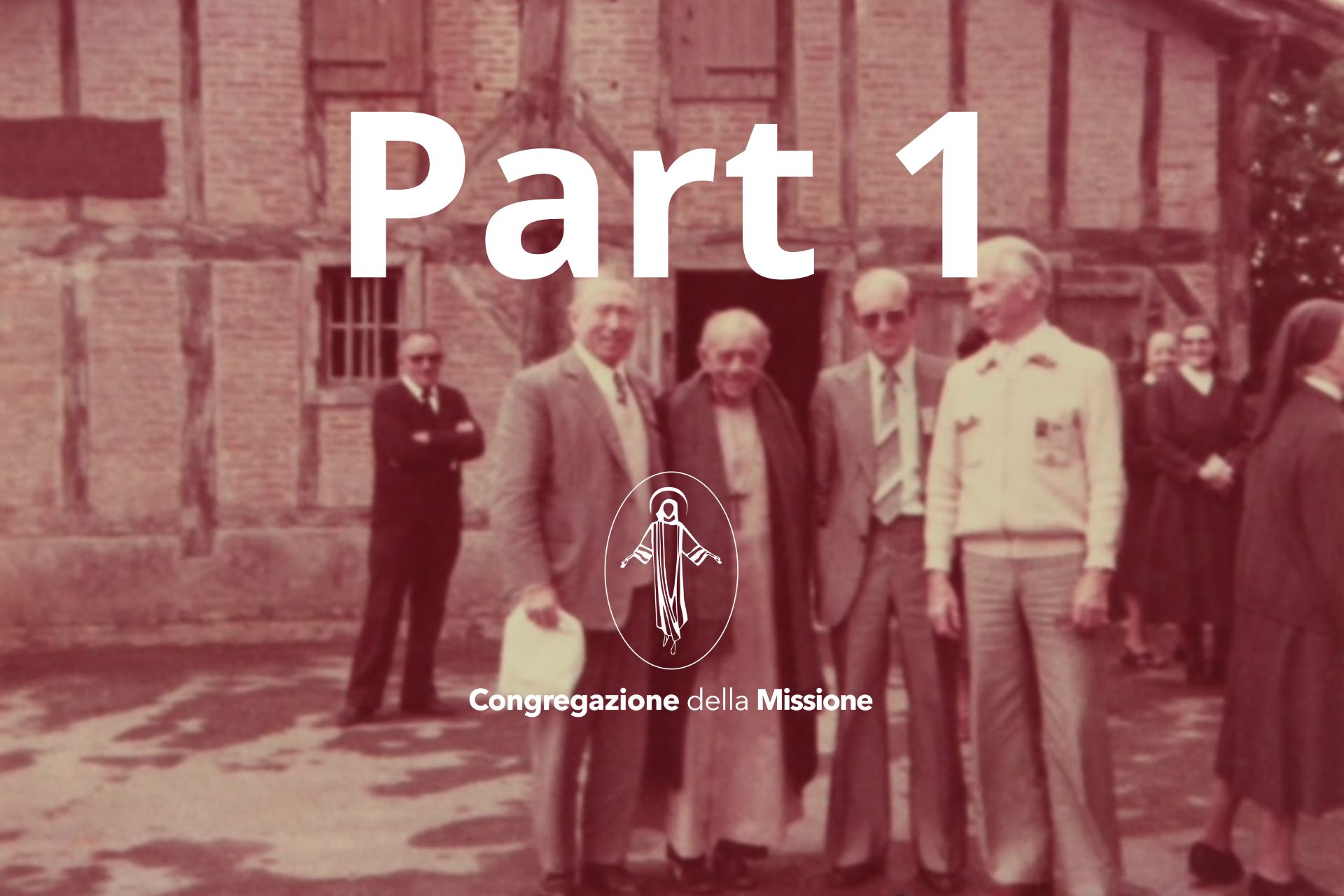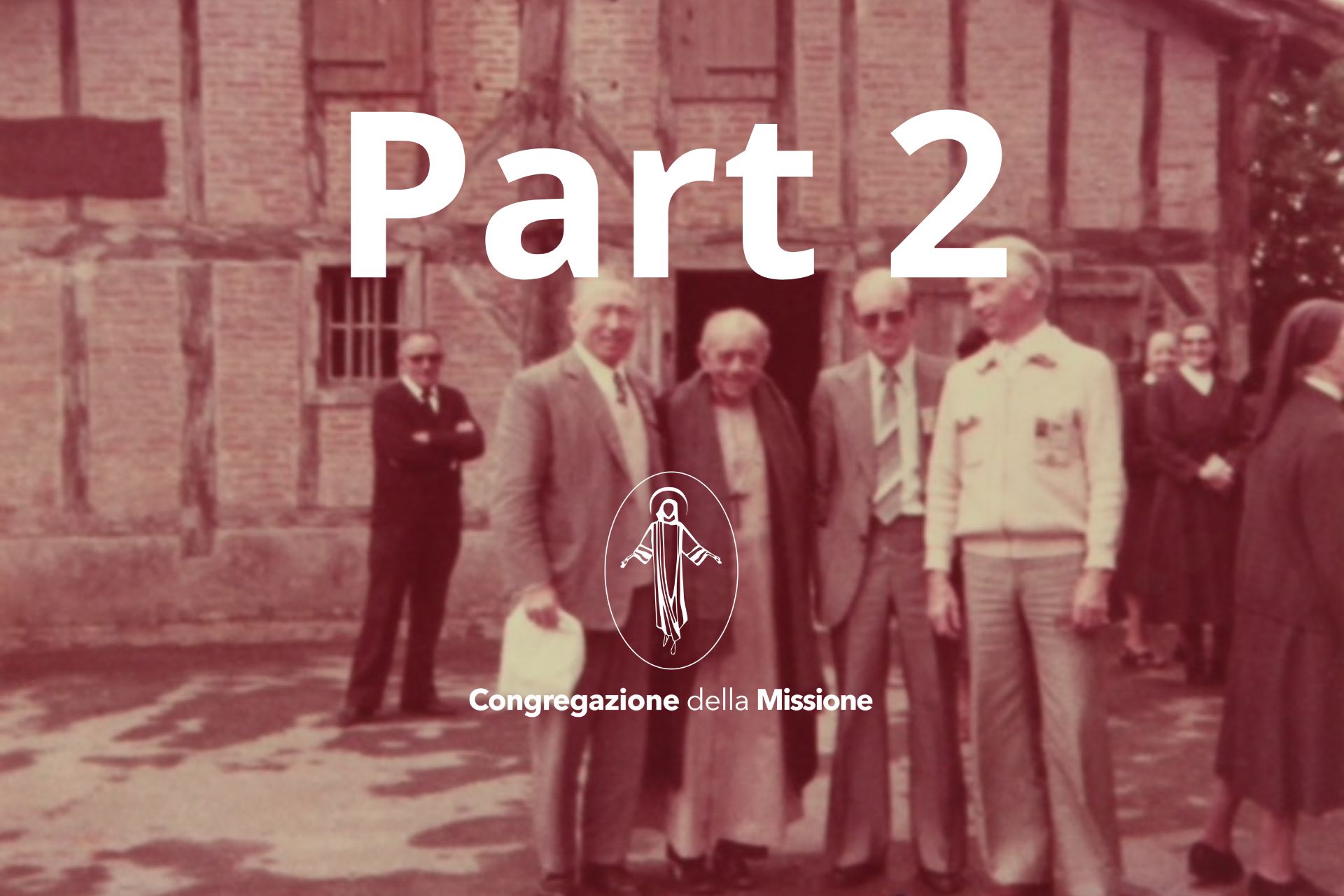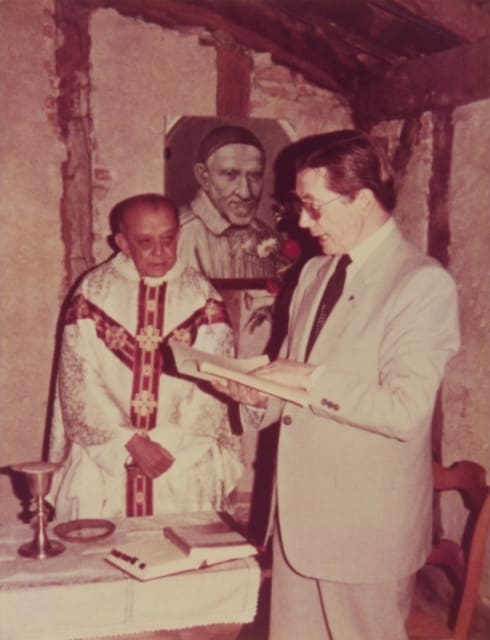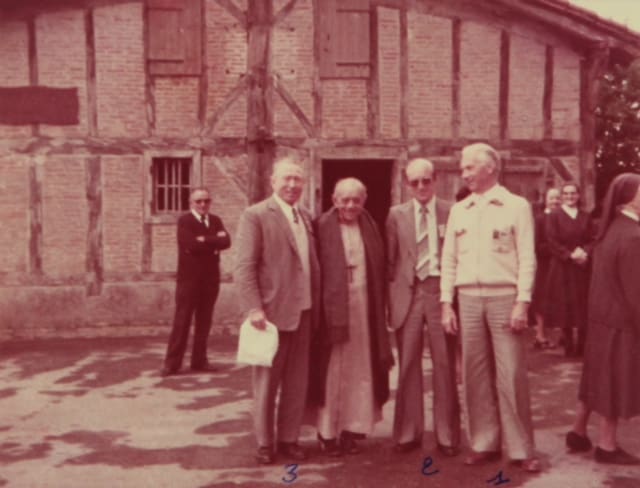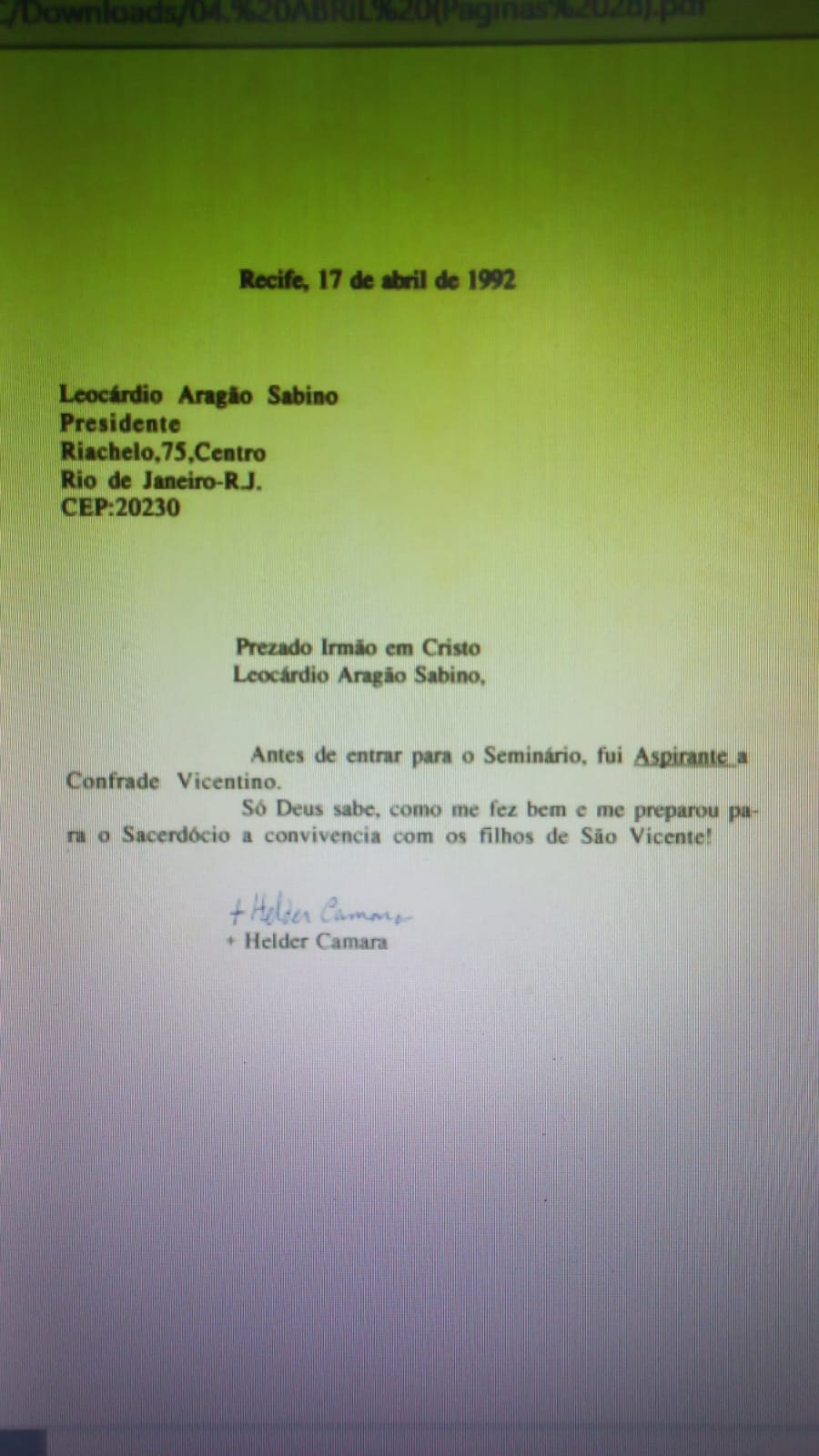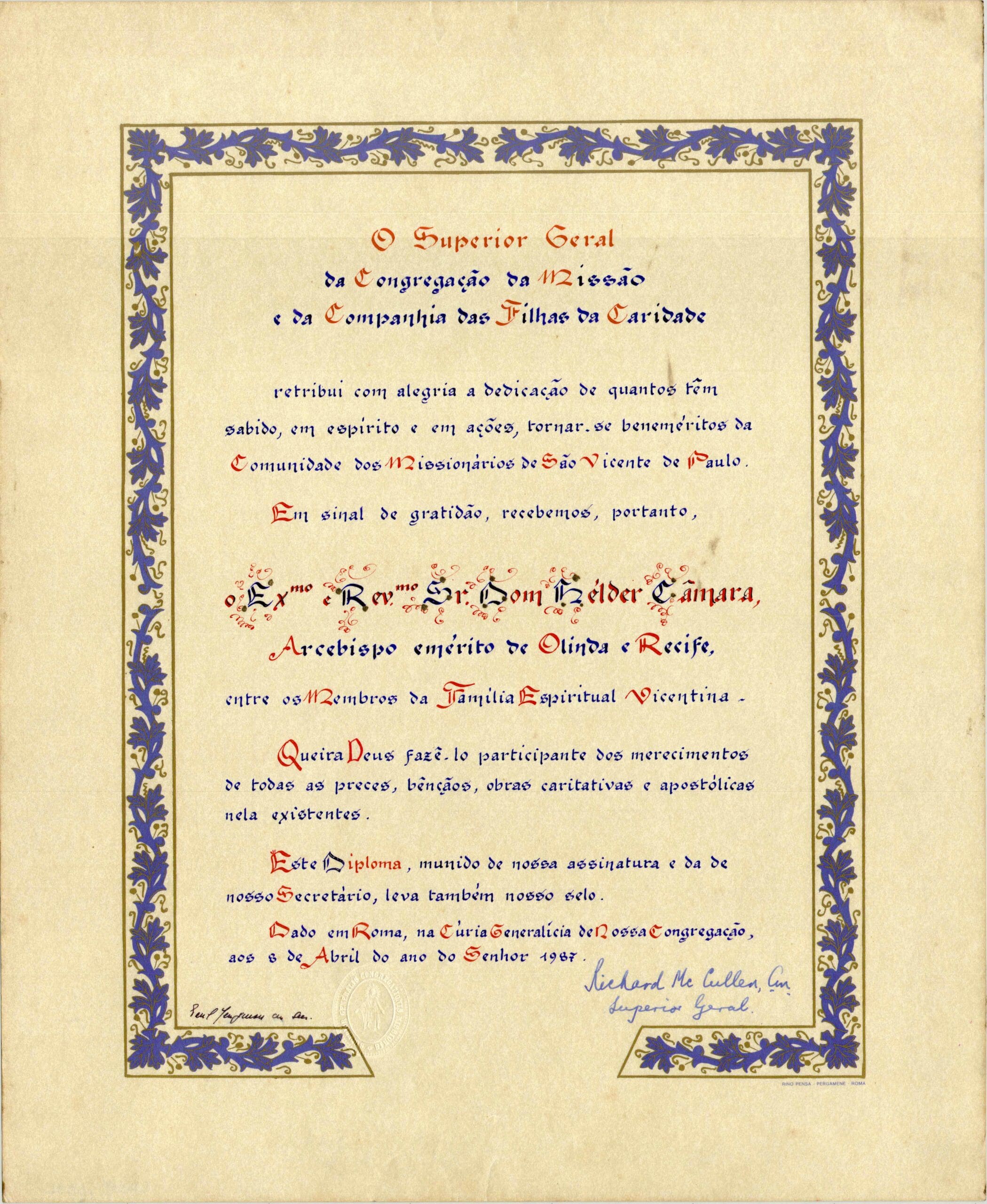Father Tobias Dequidt
Dom Helder always maintained a frank and open relationship with people. This was the case with Father Tobias. He recounted that in the seminary each seminarian had a little table with a drawer, where they could keep their most private things. The keys remained with each seminarian and the other with the rector. Dom Helder, still a seminarian, began to write his meditations. In one of the revisions of the drawers, the priest found the “poems” written by him, took them to his office and even sent a message for the seminarian to look for them if he felt he needed any paper. As Helder did not look for him, the rector decided to talk to him. The young man said that he did not look for his writings because he did not want his Rector, a man who was also a poet, a man of great sensitivity, to be embarrassed in front of a seminarian. Father Tobias, after some guidelines that he thought pertinent, apologized, returned the writings and the key to the drawer, promising not to touch it again. Helder said that he did not want any privileges and would only accept the offer if all the seminarians received their keys. And so it was done. In exchange, Helder only returned to writing his meditations from the day of his ordination onwards, taking on the daily vigils from 2 to 4 a.m. wherever he was, as long as his health allowed.
Father Pedro Zingerlet
Father Pedro Zingerlet held a privileged place in Dom Helder’s heart. He looked after the “Work of Vocations” which partly financed Helder’s formation, since his parents could not afford to pay the full amount, as Dom gratefully told me on several occasions” (Father João Pubben, CM, “Dom Helder and the Lazarists”).
Father John Pubben. Father João was Dutch by birth and Brazilian at heart. He lived in Brazil for 45 years, 42 of which in Recife, in the community of Dois Unidos, a pastoral area entrusted to him by Dom Helder. He arrived in Recife in September 1968, at the age of 29. He was away from the Congregation of the Mission – CM. He was welcomed by Dom Helder who witnessed his reintegration into CM during the Eucharist concelebrated with the then Superior General, Father James Richardson. They maintained a filial relationship. Dom Helder often visited the Community of Dois Unidos, especially around the time of the feast of St Vincent de Paul. Dom testified about Father João: “Recife,
9.2.69. Yesterday, at Dois Unidos, near Beberibe, I found a Community living Christianly with its Parish Priest, the former Lazarist Father João [Pubben]. I was moved by the poverty of life he had embraced and the immense prestige which living with the people immediately brought him? (CPC 484. Vol IV. Part III p. 62). (Cf. Doc 5).
Other Lazarists
During the whole time that Dom Helder was Archbishop of Olinda and Recife, the Province of Fortaleza had its Seminary in Recife, so that the future Lazarists could study philosophy and theology at the renowned Theological Institute of Recife, founded by Dom Helder Camara. Dom Helder visited the Seminaries on several occasions, charming everyone with his easy words and simplicity of life. He created the parish of Apipucos (the neighbourhood where the Lazarist Seminary was located) and entrusted it to the Lazarists:
With the Provincial Directors he was a brother. He took part in the welcome and farewell celebrations, always wishing that those who arrived felt at home a n d could count on him as a brother.
During the 42nd International Eucharistic Congress which took place in France, Dom took the opportunity to celebrate in Berceau the 400th anniversary of the birth of St Vincent de Paul and his 50 years as a priest. He celebrated in the room where St Vincent was born (Doc 2). On his return, on his radio program “A Look at the City” on August 13, 1981, he told his listeners about his trip to the Berceau and commented on some of Vincent’s thoughts to the Sisters and Missionaries by saying:
“One of the greatest Masters of Charity has spoken. He spoke who received from God, as few, very few, the charisma of discovering Christ alive in the Brother who suffers. Saint Vincent de Paul spoke, to whom God gave the grace to discover all the great sufferings of his time, and the creative imagination and practical spirit to alleviate them all. [I ask for all of us the grace that the more we immerse ourselves in the Blessed Sacrament, the more we discover him in the poor, the oppressed, the stepped on, in the Brother who needs us.
The Daughters of Charity
Dom Helder’s relationship with the Sisters was one of brotherhood, always very attentive and present. He participated in both happy and sad moments. From the beginning of 1969 he became our chaplain, always celebrating at 6 o’clock. He would inform us of outings and journeys. He welcomed the Superiors General when they came to the Province, presided at celebrations of consignment, vows, entry into the postulancy. He always referred to the “Sisters of Charity” in his circulars.
Sister Catarina Damasceno. During the period when Dom Helder lived in the Frontiers residence next to the Provincial House of the Daughters of Charity in Recife, Sister Catarina helped him in various ways. Initially by visiting the poor before the six o’clock Mass. Sometimes with Dom Helder, other times alone, taking something for the first meal of some, then taking care of Dom Helder’s clothes, house, meals and, later on, his health. The relationship between the two was very close and beautiful. I don’t know who helped the other more. Dom Helder convinced Sister Catherine that she should study theology at the Catholic University and he also helped her with her schoolwork, always encouraging her to continue her studies. He gave her written instructions for her retreats. He praised her relationship with the poor. Once he said that the difference between them in the care of the poor was that everyone knew his name and she knew everyone’s name. As Dom Helder’s health weakened, Sister Catherine accompanied him on several trips, including one in 1997 for Pope John Paul II’s meeting with Dom Helder.
Final considerations
Dom Helder is known as the Gift of Peace for his fight for peace without violence. He condemned the use and manufacture of weapons which only contributed to an increase in deaths and wars and their consequences. He considered hunger as a grave violence and an offence against the “Creator and Father”. He dreamed of the end of hunger and to this end he launched the Campaign “Year 2000 without Extreme Poverty”.
His fight in defence of Human Rights earned him the title of Brazilian Patron of Human Rights, through Law 13,581 of 26 December 2017.
After becoming Servant of God, the diocesan phase of the process of beatification and canonisation began on 5 May 2015. Once the initial requirements had been met, the 52 testimonies, the reports of the Historical and Theological Commissions and
400 writings of Dom Helder, chosen at random, were sent to the Vatican in December 2019. In mid-2020 the Congregation for the Causes of the Saints requested the sending of all Dom Helder’s writings, available up to that time. After searching, scanning and copying, the writings were bound, each copy making a total of 180 volumes distributed thus:
| COLLECTI ON | VOLUMES | PAGES |
| Conciliar Letters | 24 | 8.136 |
| Speeches | 31 | 10.300 |
| Radio Programmes | 33 | 9.967 |
| Hemeroteca | 25 | 9.580 |
| Correspondence | 41 | 14.816 |
| Meditations of Father Joseph | 19 | 7.868 |
| Books | 07 | 2.790 |
| TOTAL | 180 | 63.457 |
This material, was packed in twenty boxes totalling 415 kilos, transported by TAP – Transportes Aéreos Portugueses, accompanied by Monsignor Luciano José Rodrigues Brito, Vicar General of the Archdiocese. Delivered to the Commission on May 31, 2022. The Decree of juridical validity of the process, recognizing that all the acts and all the documentation done in the Diocese have been approved by the Dicastery of the Causes of Saints. We are awaiting the appointment of the Rapporteur who will coordinate the writing of the Positio.
I conclude with two references of Dom Helder to Vincent de Paul:
Dear Saint Vincent,
The Lord has given you the
gift of discovering suffering
wherever he was…
Children, young and old
prisoners and mad
priests and Magdalenes
– everyone, everyone still benefits from
your unparalleled charity.
Let love for our neighbour
occupy an ever greater place
in our lives.
Amen. (Letter from the collection “Virgínia Cortes de Lacerda, 19th July 1943).
The other is an extract from a homily that Dom Helder gave on the occasion of the Solemnity of Saint Vincent, 27 September 1975, in the Community of Dois Unidos, on the outskirts of Recife, where a Father of the Mission and a Daughter of Charity were working:
“God gave Saint Vincent de Paul antennae to capture all the great sufferings of his century. What suffering existed in his time and in his France without his being aware of it? And the Lord gave him the grace to discover for every suffering the adequate providence (…). How many times I ask myself : “What would dear St Vincent do if he came back to earth in our times? Of course he would have already discovered that poverty today does not only affect individuals and families. He would see the scandal of numerous countries, of entire continents, more than in a state of poverty, in a state of misery. With his shrewd eye, he would discover that, if there are countries which are always richer and many more countries which are always poorer, at the root of this gap, which only increases, there are incredible injustices. And Saint Vincent would denounce injustices, whatever their consequences (…). May the Divine Spirit breathe on all of us who deal with poverty, so that we may be at least a shadow of the shadow of the great and dear Saint Vincent.
Recife, 22 May 2023 Maria Vanda de Araujo, FC
Annexes
Doc 1 – Studies at the Seminary of Prainha
Doc 2 – Mass at the Berceau of São Vicente 1
– Mass at the St Vincent de Paul Crib 2
Doc 3 – Member of the Society of St. Vincent de Paul-SSVP Doc 4 – Affiliation to the VF
Doc 5 – Some notes on my meetings with Dom Helder Camara, Father João Pubben, CM – Unpublished
Doc 6 – Dom Helder Camara and the Lazarists, article written by Father João Pubben, CM
REFERENCES
- BEOZZO, José Oscar. Pact of the Catacombs, for a poor and serving Church. São Paulo: Paulines,
- CAMARA, Helder. Conciliar Circulars. Volume Volumes I, II and III. Recife: CEPE, 2009.
- . Interconciliar Circulars. Volume II. Volumes I, II and III. Recife: CEPE, 2009.
- . Post-Conciliar Circulars. Volume III. Volumes I, II and III. Recife: CEPE, 2011.
- . Post-Conciliar Circulars. Volume IV. Volumes I, II, III and IV. Recife: CEPE,
- . Meditations of Father Joseph. Volumes 1 to 50. Collection of the Dom Helder Camara Institute.
- DE PAUL, Saint Vincent. Conferences to the Daughters of Charity. Lisbon: Daughters of Charity,
- DAUGHTERS OF CHARITY OF VINCENT DE PAUL – FC Collection of the Province of
Reef.
- GOVERNMENT OF THE STATE OF PERNAMBUCO. Final Report of the Dom Helder Camara State Commission on Memory and Truth. Volumes I and II. Recife: 2017.
- HOORNAERT, Eduardo. Helder Camara – when life becomes Gift. São Paulo: Paulus,
- DOM HELDER CAMARA INSTITUTE – Collection
- PILETTI, Nelson; PRAXEDES, Walter. Dom Helder Camara the prophet of peace. 2.ed. São Paulo: Context,
- PUBBEN, João. Dom Helder and the Lazarists. Unpublished.
